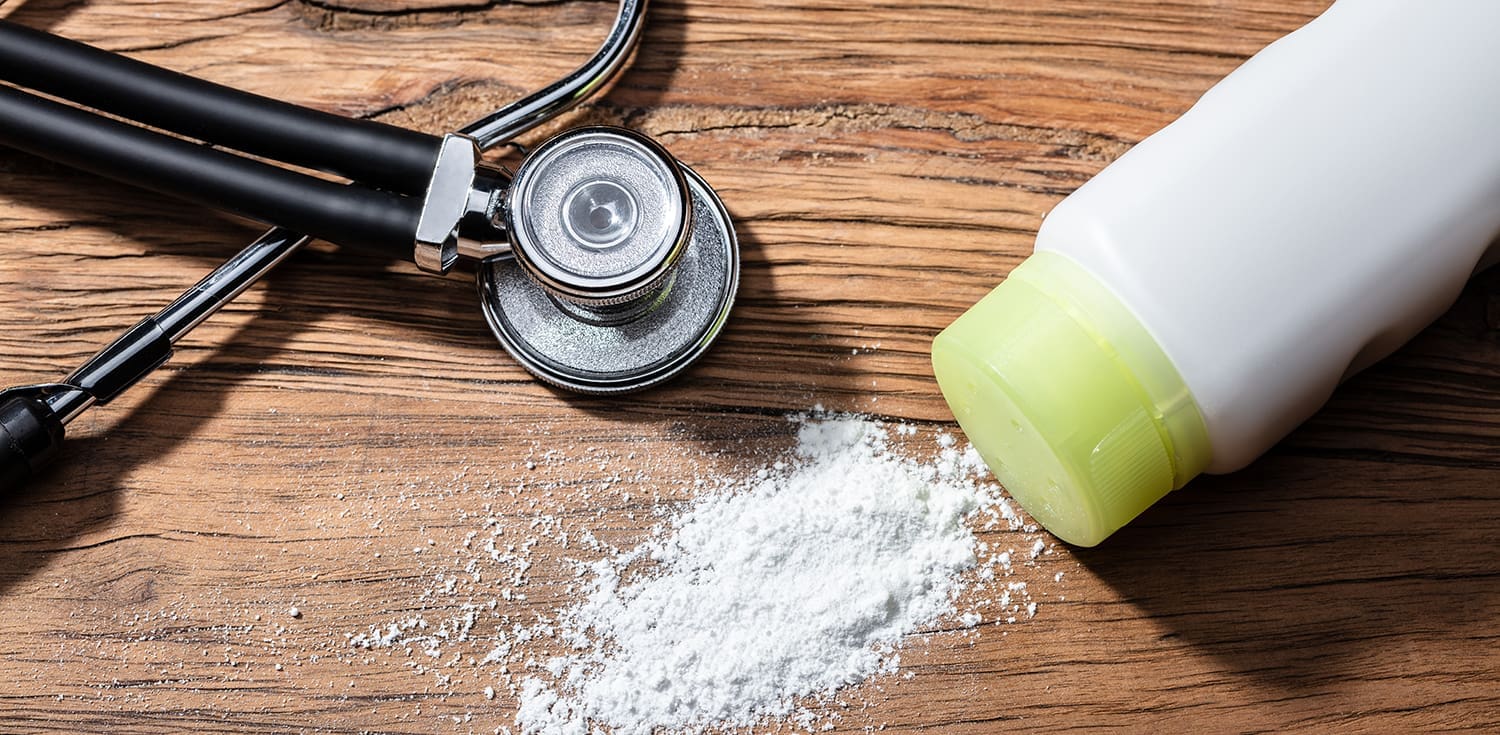
After having its product pulled from store shelves across the country and facing billions of dollars in liability, Johnson & Johnson has announced it will stop selling its talc-based baby powder in the United States and Canada. While removing this dangerous product from the market is welcome news from a public-health perspective, there is still much work to be done and other hurdles to overcome. Fears Nachawati partner Darren McDowell and Fears Nachawati attorney Eric Przybysz recently sat down to discuss the current state of talc litigation and where things go from here.
Johnson & Johnson says the reason it decided to stop selling its baby powder in the U.S. and Canada is because demand dropped off. Do you believe that?
Darren: No. And the reasons for that are twofold. First, retailers early on recognized the dangers associated with Johnson & Johnson baby powder and proactively pulled J&J talc products off their shelves. Secondly, for the most part, there is an inherent trust we have in companies such as Johnson & Johnson. We want to believe they operate with society’s best intentions. People want to believe that products, such as Johnson & Johnson baby powder, which was marketed for use on children, would be tested and safe. The demand for Johnson & Johnson talc products was not lost — the trust in Johnson & Johnson was.
Did Johnson & Johnson’s decision to discontinue its baby powder in the U.S. and Canada go far enough?
Darren: It’s a huge deal for Johnson & Johnson to take its marquee product off the shelf in the United States and Canada, but if it’s too poisonous for Americans and Canadians, then the same should also hold true — and it should be too toxic and dangerous — for the rest of the world. So far, the company hasn’t announced any plans to halt sales in Europe or anywhere else. So no, I don’t think it’s gone far enough.
Why would Johnson & Johnson make this decision here but not the rest of the world?
Eric: One possibility is that it’s assessed the risk and believes it can get away with it. For whatever reason, it thinks it won’t be held accountable like it has been here in the United States.
Has Johnson & Johnson’s decision really changed anything? If talc-based baby powder is still available in other parts of the world, can’t companies simply order from there?
Darren: Technically they could. But companies like Walmart, CVS and Walgreens made it clear where they stood on the matter when they recognized just how hazardous Johnson & Johnson baby powder was and pulled the product from their shelves. They were the ones who eliminated the market and, if not forced J&J’s hand, played a big role in its decision. The supplier didn’t have anywhere to go, so it really had no choice.
Where do things stand with current and pending talc litigation?
Eric: Judge Freda Wolfson, a federal judge in New Jersey who’s overseeing a lot of these cases, ruled in April that she would allow testimony from the plaintiffs’ scientific and medical experts. Now these experts can testify to the fact that talcum powder exposure, specifically Johnson & Johnson baby powder, can increase a woman’s chances of developing ovarian cancer. J&J fought against this for years, and if Judge Wolfson hadn’t allowed their testimony, Johnson & Johnson likely would have tried to have these cases dismissed. Now they can move forward. And this could even set a precedent for future cases. It’s a very positive development.
What comes next?
Darren: There are three possibilities. One, Johnson & Johnson can take the posture we’ve seen them take in mesothelioma and asbestos litigation, litigating every case and denying all liability. Two, they can accept responsibility and start resolving meritorious cases, putting this litigation behind them. Or three, they can seek protection for litigation in the bankruptcy court. A few years ago, Johnson & Johnson began placing their litigation liabilities off into a separate entity called Johnson & Johnson Consumer Inc. They could bankrupt JJCI, extinguish all their liability associated with their talc products and still maintain the parent company.
Would this affect the parent company, or is this like cutting off the arm to save the body?
Darren: The truth is, Johnson & Johnson would hardly be affected at all. As a matter of fact, it would probably come out healthier than before, because it wouldn’t have all of these lawsuits hanging over its head.
How would this affect the people who have gotten sick from Johnson & Johnson products?
Eric: J&J allowing this separate entity to declare bankruptcy will negatively impact those who have gotten sick, as well as those who will develop an illness in the next few years. Through the bankruptcy system, they’ll be given pennies on the dollar compared to what they’d receive through the court system.
So, for those who find out they’re sick years from now, receiving any sort of compensation is going to be much more difficult?
Eric: Yes. A full recovery will be harder to obtain the longer all of this drags on. For those who are sick, it’s very important that they act quickly and discuss their options with an attorney, because they may not have that option available to them in the future.
Fears Nachawati is currently assisting those who have developed ovarian and other forms of cancer after years of using Johnson & Johnson brand baby powder and other talc-based products. If you or someone you know has been hurt or would like to know more, we can help. Contact us here or call us at (866) 979-2331 for more information.